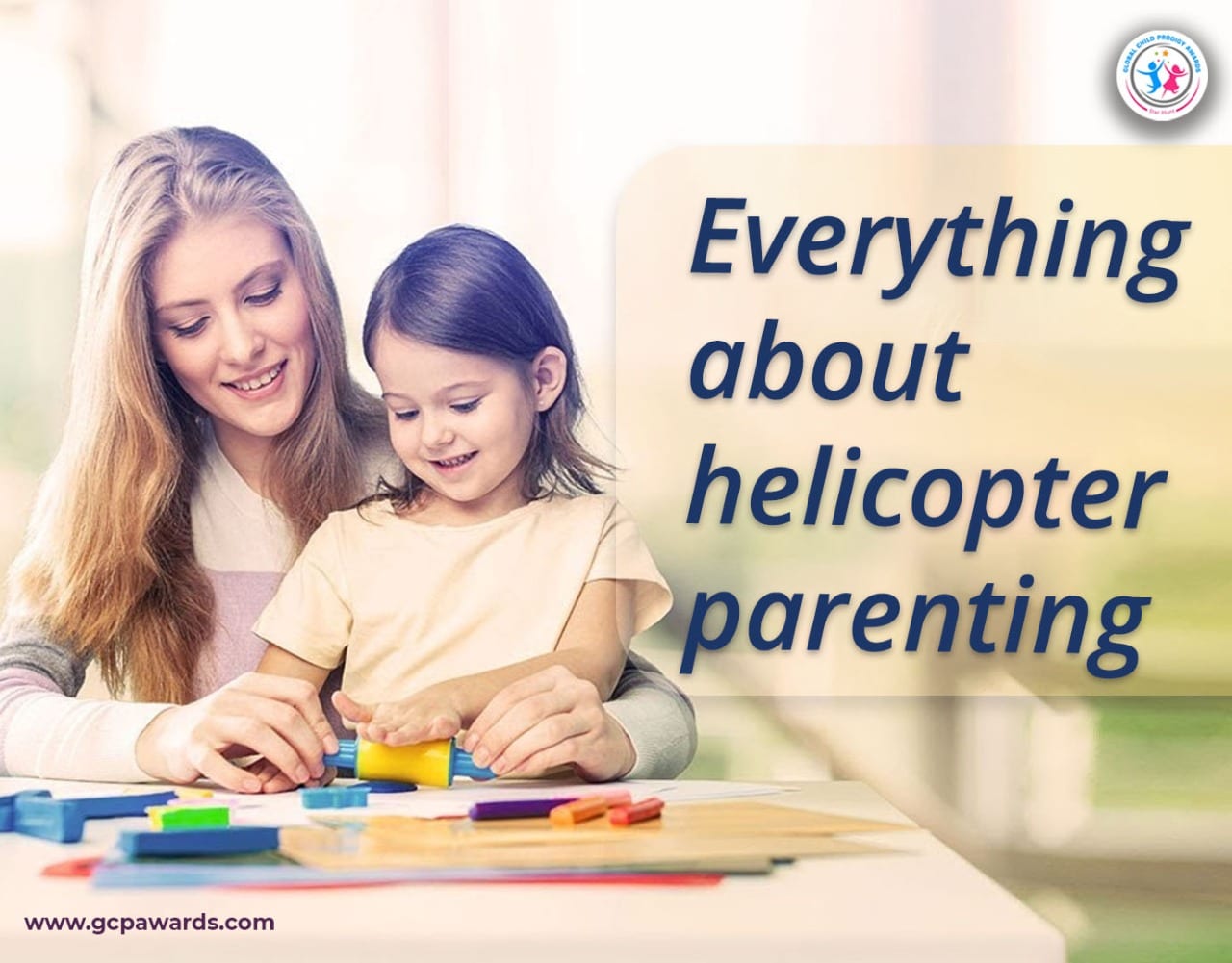Our recent blog about 8 Effective Parenting Goals To Make Your Life Easier mentioned helicopter parenting. Let’s know what it is.
Every parent’s dream is a happy child who does well for themselves. We love our children too much, and when the opportunity to make their life easier knocks, who wouldn’t jump at the chance?
“Hyper-involvement in a child’s life” best describes helicopter parenting (also called cosseting). You develop this instinctual behavior to support your child and hover over them like a helicopter. Hence, the term got its name.
Closely related to lawnmower parenting, a helicopter parent “hovers over” — so to speak — their child must not face any problem, so they never feel hurt, pain, or disappointment.
Why Do Parents Hover?

Helicopter parenting has various reasons. Here are four common triggers.
1.Fear of dire consequences:
Parents try to prevent and reduce the struggles of their children. Primarily, helicopter parenting arises when parents feel they could’ve done more to help. They stop their child from unhappiness, struggle, not excelling, and working hard with no guaranteed results, which they consider life-threatening.
2.Feelings of anxiety:
We all realize how hard the life of parents is. They have their own share of worries and insecurities. Often worried about the economy, the job market, and the world, in general, pushes parents to take more control over their child’s life to protect them. Worry can drive parents to take control in the belief that they can keep their children from ever being hurt or disappointed.
3.Overcompensation:
Parents with deep-seated issues like unloved, neglected, or ignored as children try to overcompensate. Putting the child under the lens is just an attempt to remedy a deficiency the parents felt in their own upbringing.
4.Peer pressure from other parents:
Influenced by the other over-involved parents, helicopter parenting seems like a great option. It stresses us to do the same. This arouses guilt as bad parents if we don’t immerse ourselves in our children’s lives. Guilt serves as a significant component in this dynamic.
Outcome of Helicopter Parenting

Though helicopter parentings let you take control of your child, it often backfires and causes low self-confidence or low self-esteem in children. Their decision-making abilities never develop, and they may doubt everything since they’ve never figured out anything on their own.
Feelings of low self-confidence and low self-esteem worsen with time as they lead to other problems, like anxiety and depression.
A 2014 study evaluating the consequences of helicopter parenting style on college students found that these students were more likely to be on medication for anxiety and depression. The study dealt with a reasonably narrow population in Turkey that was primarily female.
If you’re a helicopter parent, you just wanted what’s best for your child. Though your intentions were holy, think about the person you want them to be, and then choose your parenting style. Sometimes, stepping back eases a burden.

Content creator at GCPA with 2 years of experience in content writing | Feel free to contact me at team@139.84.133.140

